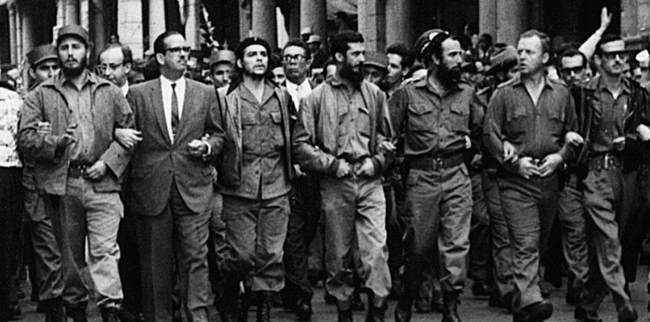Cuba's revolution, soon to be 60 years young, shows us what is possible under socialism
Morning Star | Monday, 24 December 2018 | Click here for original article

FIFTY-SEVEN years ago, Fidel Castro declared Cuba free of illiteracy. This staggering achievement of the Cuban people came after a year of intense struggle involving an estimated one million Cubans.
From January 1 to December 22 1961, 100,000 young people aged 10-19 journeyed out into the countryside to teach people to read and write.
They were joined by 15,000 workers, who were deployed to the countryside, 13,000 who held classes in the factories after work and 15,000 professional teachers who supervised operations. Together, they taught 707,212 people to read and write, raising Cuba’s literacy rate from an estimated 60 per cent to 96 per cent in under a year.
Inspirational though this story is, it is but one of the many achievements of the Cuban Revolution over the last 60 years. From increasing forestation from 11 per cent to 30 per cent, to being the only country to meet climate change obligations ahead of time; from developing a world class education system on a small Caribbean island under economic blockade, to a being at the cutting edge of medical science and developing a vaccine for lung cancer; from sending medical personnel to disaster areas across the world, to establishing a school specifically to train doctors from some of the most impoverished parts of the Americas for free.
The Cuban Revolution has not only changed the lives of its own citizens, but of working people across the globe. It is a shining example of socialism, and of internationalism.
And that, of course is the true power of the Cuban Revolution, and the threat it poses to US imperialism and to reactionary governments worldwide.
The Cuban example shows not only that socialism is possible, not only is it possible for the people of a small, isolated Caribbean island to build a better society by taking ownership of the state and of the means of production, but that even under the most severe economic and political pressure, they are able to extend the hand of friendship to the rest of the world.
That example is dangerous because it is the example that inspires revolutionaries worldwide.
Take Britain. As many of us prepare to spend the festive period with family and loved ones, to celebrate the end of one year and look forward to the beginning of the next, housing campaign Shelter estimates that 320,000 people will be homeless this Christmas. According to the TUC, 3.7 million people are in insecure jobs, and an estimated 5.5 million are paid below the real living wage, according to researchers from Bradford and Durham universities.
What will improve the lives of these people is not charity, nor vague sentiment about considering those “less fortunate than ourselves.” They are not “less fortunate”; they are victims of an economic system which makes some people extremely rich by keeping others in poverty. And they certainly won’t be helped by Tory MPs grinning outside the food banks they and their policies helped create the need for.
The way to improve the lives of the mass of ordinary people struggling under this government for the rich by the rich, is to end the bloody system of economic exploitation which holds them in chains. That is the cause to which we must dedicate ourselves.
In announcing the success of the literacy campaign 57 years ago, Fidel Castro said: “No moment is more solemn and exciting, no instant as full of legitimate pride and glory as this, in which four and a half centuries of ignorance have been defeated.”
Let us look forward to the moment of pride and glory when we can consign centuries of capitalist exploitation to the dustbin of history and unleash the power and creativity of the people for the common good.
This Morning Star editorial featured in the Morning Star special 60th Anniversary of the Cuban Revolution edition






